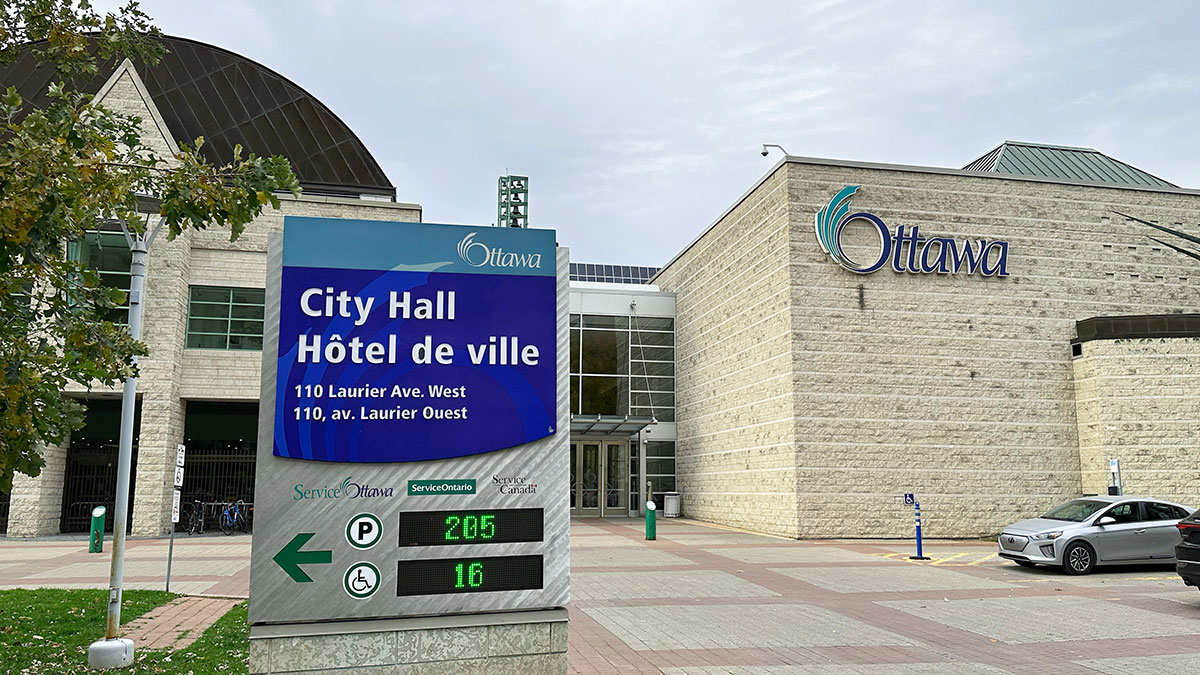Despite objections and concerns brought up by some councillors, City Council voted in favour of a study examining whether a ‘bubble bylaw’ is necessary and feasible in Ottawa.
The Vulnerable Social Infrastructure By-law would restrict protests outside vulnerable places such as schools, places of worship and hospitals.
The proposed bylaw aims to tackle increasing hate in Ottawa. In 2023, Ottawa Police reported a 19 per cent increase in hate crimes against Muslim, Jewish, LGBTQ+ and other minority groups.
Many councillors said this study will give insight into dealing with increasing hate crimes and people feeling unsafe in their communities, while others have concerns about the implementation of the bylaw and the effect on peoples’ right to protest. The motion passed at the Oct. 30 meeting by a 22-3 vote.
In June, a similar bylaw took effect in Vaughan, Ont., which has a $100,000 fine for violations.
Coun. Ariel Troster, who voted in favour, told council she has conflicting feelings about this bylaw, but ultimately believes this study is a “conversation worth having” with lawyers, police and vulnerable groups like the LGBTQ+ and Jewish community.
“My vote today is simply to continue the conversation because I think it’s really important, but it is a sobering one, and it’s one I’m very concerned about,” Troster said.
She also brought up her concerns with emulating the Vaughan bylaw and the $100,000 fine.
“[The Vaughan bylaw] hasn’t been tested in court yet,” Troster said. “We don’t know about its constitutionality until it goes to court for real.”
Coun. Sean Devine, who voted against the motion, told council he has concerns about the bylaw as there are already laws in place to ensure public safety.
“Laws and bylaws already exist that prohibit things like excessive noise in residential areas without a permit, or harassment of private citizens or trespassing on private property or assault,” he said.
Devine said the proposed bylaw makes legal forms of protest like holding a sign or silent vigils illegal and that the Vaughan bylaws enforces this through a hefty fine.
“[Vaughan’s bylaw] make[s] it illegal to protest outside certain sorts of buildings or areas where most of the activities that would be objectionable under Vaughan’s by law are already illegal,” he said.
Coun. Shawn Menard echoed Devine’s comments and called the proposed bylaw an “expensive and ineffective move” that would let the government decide which protests are acceptable and which are not.
Coun. Allan Hubley, who brought the motion forward, reassured council that the goal of the study isn’t to emulate Vaughan’s bylaw but rather look into what a bubble bylaw would look like in Ottawa using cities like Montreal, Calgary and Vaughan as examples. There are also multiple ‘bubble-zone’ laws in Canada to protect abortion providers.
Mayor Mark Sutcliffe said this study is just the first step in potentially implementing the new bylaw.
“I have heard from many residents in our community about concerns they have about a number of different events that have taken place or could take place in the future, near schools, near places of worship,” he said. “We must strike the right balance going forward.”
City council will discuss the study’s recommendations once it’s completed next year.




